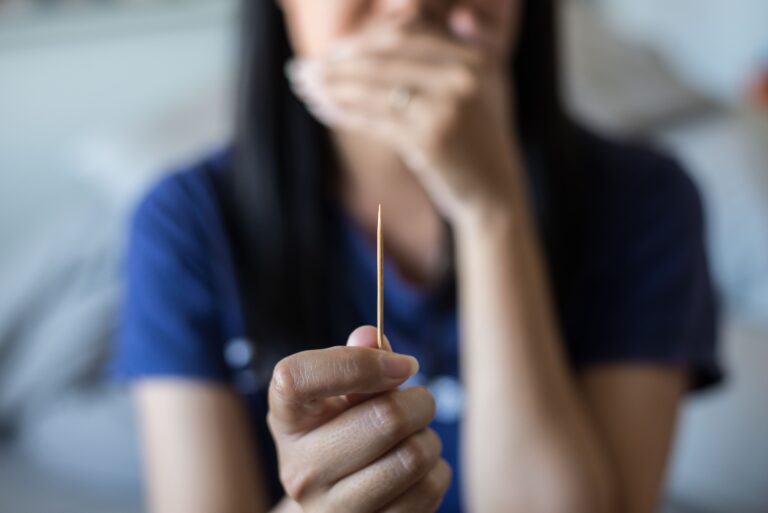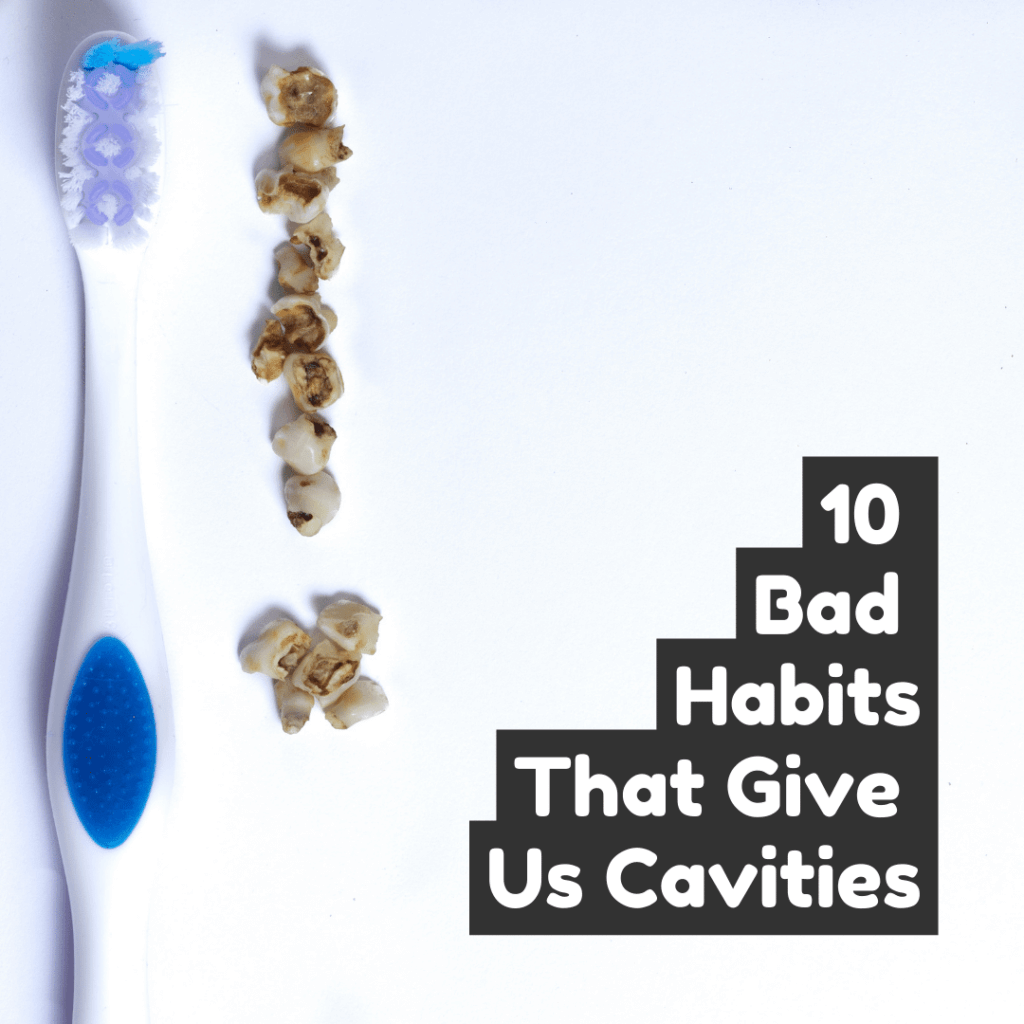Do you know what cavities are? Cavities are tiny holes that form in your teeth when plaque (a sticky film of bacteria) is not removed. Cavities can lead to tooth decay, and if left untreated, can cause serious oral health problems. In this blog post, we will discuss ten bad habits that can contribute to cavities and affect your oral health.
Drinking Soda
Drinking soda is one of the worst things you can do for your teeth. The sugar in soda can increase the amount of plaque on your teeth, and the acidity can erode tooth enamel. To minimize the damage that soda does to your teeth, we recommend using a drinking straw, minimizing your daily soda intake, and rinsing your mouth with water after drinking soda.
Chewing on Gummy Snacks
Chewing on gummy snacks is also bad for your teeth. The sticky texture of gummies can adhere to your teeth and feed bacteria for hours, ultimately leading to the formation of cavities. Sugar-free gummy snacks are recommended if you must have your gummy snacks. You should also brush your teeth 30 minutes after snacking to remove any residue from your teeth.
Using Your Teeth as Tools

Using your teeth as tools (e.g., to open a bottle or tear open a package) can damage your tooth enamel and lead to cavities. For this reason, it is recommended to only use your teeth for biting and chewing foods.
Grinding Your Teeth
Grinding your teeth can also damage tooth enamel and lead to cavities. If you grind your teeth at night, we recommend wearing a mouth guard to protect your teeth.
Constant Snacking
If you are constantly snacking throughout the day, you are more likely to develop cavities. This is because the constant exposure to food and drinks can increase the amount of plaque on your teeth, as well as the damage being done by bacteria. If you need to snack, try foods like apples, carrots, and celery that do not cause plaque to accumulate.
Smoking
Smoking is bad for your overall health, and it is also bad for your oral health. Smoking can increase the risk of developing cavities and other oral health problems.
Brushing Too Soon
Brushing too soon after eating or drinking can damage tooth enamel. This is because the acid content is your mouth is at its highest after eating, which makes the enamel more likely to erode. We recommend waiting 30 minutes to brush your teeth after eating or drinking. This gives your saliva a chance to neutralize the acid and prevent erosion.
Flossing Without Floss
Flossing without floss can actually do more harm than good. If you don’t use floss, you are not removing the plaque and bacteria from between your teeth, which can lead to cavities. Flossing with cutlery, fingernails, strands of hair, toothpicks, or safety pins is not only useless, but it is dangerous and can cause serious damage to your teeth and gums. Be sure to only floss using dental floss.
Not Maintaining Your Toothbrush
You should replace your toothbrush every three months, or sooner if the bristles are frayed. If you don’t replace your toothbrush, the bacteria can build up and lead to cavities. Not to mention, a worn out toothbrush does not effectively remove excess plaque and bacteria, which can make your brushing routine less effective.
Sharing Eating Utensils
Sharing eating utensils with someone who has a cavity can increase your risk of developing a cavity. This is because the bacteria from their mouth can transfer to your mouth and cause cavities. Cold and flu germs can also spread easily when sharing eating utensils, so it is not recommended to do so.
In Conclusion
In this blog post, we discussed ten bad habits that can contribute to cavities. These are just some of the bad habits that can lead to cavities. We recommend seeing your dentist regularly for checkups and cleanings to help prevent cavities. And, if you do develop a cavity, be sure to get it treated as soon as possible. We hope that this information was helpful and that it helps you to be more mindful of your oral health. Thank you for reading!



